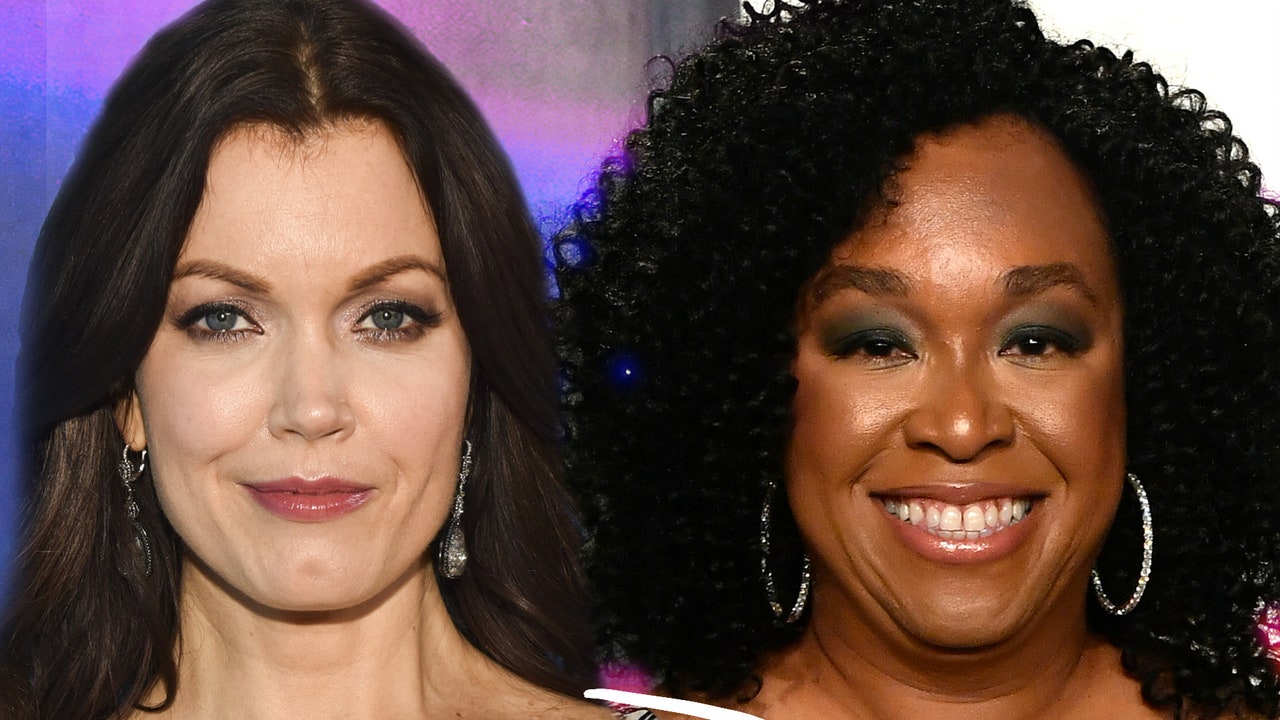What Bellamy Young Learned About the Power of Sisterhood from Shonda Rhimes

To celebrate International Women’s Day 2020, we asked women like Jackie Aina, Cecile Richards, Andrea Mitchell, Bellamy Young, and more to reflect on how other women have lifted them up—mentored them, advised them, represented them, and above all showed them what was possible. We’ll be sharing their stories here all week.
Unlike most people in the world, I have lived in a matriarchal society. I highly recommend it.
The women who lived there with me—we found our power, we found our voices and were encouraged to lift them up. And once we stepped into that light, we never turned around and said, “Oh, darkness, I missed that.” The experience changed us forever.
Let me explain: For a beautiful period of time, I had dual citizenship in two countries—the United States of America…and Shondaland.
In 2011, Shonda Rhimes cast me as Mellie Grant on Scandal. I knew that the role was a huge break, especially for a woman in her 40s. At that point, knowing what I knew about television and this business, I had just given up hope on certain kinds of opportunities. It had taken a toll on me. It’s like, “Well, I won’t be cast as that kind of character.” Or, “OK, I won’t get that kind of part.” As soon as someone posts your age online, you just know your options are narrowing.
With Scandal, I was going in to read for this tiny part. I had, I think, two lines. But Shonda Rhimes doesn’t write characters. She writes souls, and then over time, through casting, those souls reveal themselves to her. All of those details—gender, sexuality, race—come into clearer focus, which is how that small part became something so much bigger. I remember standing there, thinking how fortunate I was just to be in that room. But then I got in front of Shonda, and there’s something in how she sees you. It’s profound. It’s not overt and it’s not strange. It’s so safe and curious and accepting. She looks at you, and she doesn’t see your outfit or your hair. She sees who you are.
I got the part, obviously. And then I did seven episodes and became a series regular the next year. It was an acting job, of course. It was work. But it was also transformational for me, as a person. I got to be a different kind of woman. And I have said that to Shonda, too. I’ve told her: “I don’t know how you chose me, but I am grateful for Mellie. I am grateful that I got to be her. I am grateful that people got to know her.”
She’s a fictional character, but she—and Shonda—showed me something different was possible. When I was growing up in America in the 1980s, we were told, “You can have it all and you better pretend that it’s working.” There was no wiggle room. We weren’t supposed to show the cracks. It was a “succeed at any price, move forward, and leave everyone else in the dust” mindset. I think that’s starting to change.
But it’s still hard to be a woman in a position of power. There’s this sense that if we make one wrong move, we’re out. It wasn’t like that with Scandal or with Shonda, who taught us all to work and stretch and fall and stand and laugh and fail and sob and just be honest about what we were going through.
I hope that we passed a little of that on to the audience, to the women who saw Mellie Grant and Olivia Pope on screen and felt just a little braver in their own lives. These women were not perfect. So far from it. But when the time came, they knew how to stand up for themselves. They failed big time, but they stood their ground.
